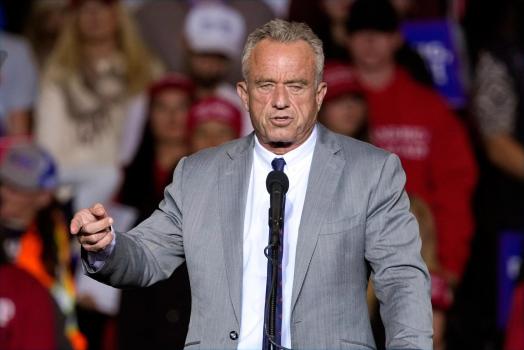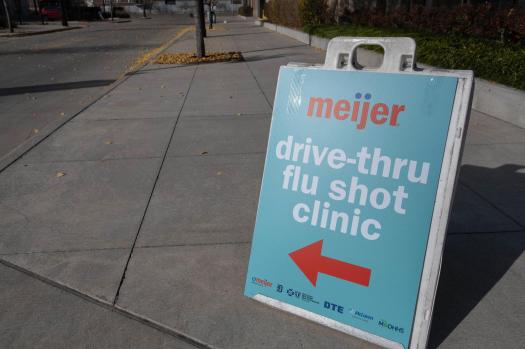London (AP) The nation is withdrawing its backing from the vaccines alliance Gavi, according to U.S. Health Secretary Robert F. Kennedy Jr., who claimed that the group had lost the public’s trust and disregarded the evidence.
Participants at a Gavi meeting in Brussels on Wednesday, where the vaccines organization aimed to raise at least $9 billion over the next five years, watched a video of Kennedy’s address.
Related Articles
-
States can cut off Medicaid funding to Planned Parenthood, the Supreme Court rules
-
Key Medicaid provision in Trump s big tax cut and spending bill is found to violate Senate rules
-
Pentagon leaders double down on the destruction from US attacks on Iran
-
Trump s latest rejection of intelligence assessments reflects a long distrust of spy agencies
-
Federal judge orders US Labor Department to keep Job Corps running during lawsuit
WHO, UNICEF, the Gates Foundation, and the World Bank are all partners in the public-private alliance known as Gavi. It has saved an estimated 18 million lives by funding the routine vaccination programs that have immunized over 1 billion children. One of its strongest backers has historically been the United States, which committed $1 billion through 2030 before to Donald Trump’s reelection.
Kennedy urged Gavi to restore public confidence and defend the $8 billion in financing that the United States has contributed since 2001, stating that decision-makers must take into account the best available evidence, even if it deviates from accepted wisdom. Kennedy stated that the United States will not make any more contributions to Gavi until that time.
Longtime vaccine skeptic Kennedy said he and President Trump were worried about how Gavi and the WHO collaborated with social media companies during the COVID-19 pandemic to suppress free speech, legitimate questions, and opposing viewpoints at a time when many people had doubts about the safety of vaccines.
Kennedy stated Gavi continues to make dubious suggestions, such as encouraging pregnant women to receive the COVID-19 vaccination and providing funds for the introduction of a vaccine that protects against pertussis, tetanus, and diphtheria in developing nations.
Given their increased risk of developing serious illness, the WHO and other health authorities have advised pregnant women to receive the COVID-19 vaccine.
Kennedy claimed to have seen studies that found young girls who had vaccinations against pertussis, tetanus, and diphtheria had a higher chance of dying from all other causes than children who did not receive the shots.
Although there is no proof that the vaccine is to blame for the fatalities, several observational studies have revealed that vaccinated females do have a higher death rate than uninfected children.
Gavi stated in a statement on Thursday that the safety and well-being of children are its top priorities. According to the organization, it follows the advice of WHO’s expert vaccination group when deciding which vaccines to purchase.
According to the statement, this guarantees that Gavi funding are based on the most up-to-date research and public health goals. According to Gavi, the vaccination against diphtheria, tetanus, and pertussis has been crucial in reducing childhood mortality by half. Scientists have examined all available data, including any research that raised concerns.
On Wednesday, the British government announced that it would provide Gavi with 1.25 billion pounds ($1.7 billion) between 2026 and 2030. According to the statement, the funds would assist Gavi in shielding up to 500 million children in some of the world’s poorest nations from illnesses like measles, cholera, and meningitis.
The Robert Wood Johnson Foundation and the Department of Science Education of the Howard Hughes Medical Institute provide support to the Associated Press Health and Science Department. All content is entirely the AP’s responsibility.












